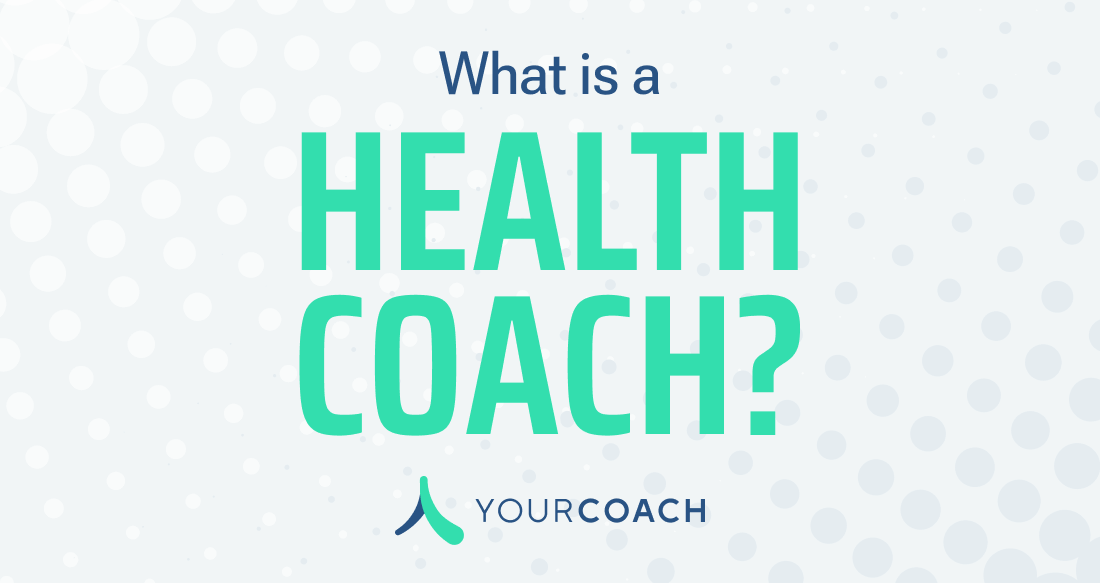
At YourCoach, we’re serving as a solution for verified and validated health coaches and industry partners who’ve identified a need for their services. Throughout these conversations we’re often asked, “So what exactly is a health coach?” We know many coaches on our platform hear this same question from potential clients daily.
This question is arguably the first and most important step towards developing a new client/coach relationship. In order to further the Health Coaching Revolution, our effort to spread the power of health coaching to the global population, we need to educate as many people as possible about health coaching and its efficacy. We’re happy to take on this endeavor, and today, we’re taking a step back to outline what is (and isn’t) health coaching.
What does a health coach do?
The NBHWC defines health and wellness coaches as those who, “partner with clients looking to enhance their well-being through self-directed lasting changes, aligned with their values.” Put simply, health coaches support clients with their goals related to health and wellness. These goals are expressly tailored to an individual’s needs, which means a health coach can support clients with anything from incorporating more movement in their day-to-day to adopting habits that improve their energy levels. Many coaches even specialize with a specific cohort of clients—so some have education/experience working with clients who have autoimmune conditions, are looking to age gracefully or are undergoing cancer treatment.
Health coaches leverage scientifically-backed (and proven!) techniques to help clients along their own health journeys, which is part of why it’s so effective! Many coaches are certified or have received certifications from the NBHWC, and over a hundred institutions accredited by the NBHWC, to master these techniques.
Some tools health coaches might use to help clients achieve success include:
- Motivational Interviewing – asking open-ended questions that guide clients to provide their reasons for wanting to change and define their goals
- Establishing accountability – regularly checking in and leveraging tracking technology to help clients keep their goals in mind
- Positive psychology – supporting a mindset that’s conducive to change, improving confidence and self efficacy through affirmations, gratitude and more
Health coaches maintain a client-centered approach, activating clients’ inner strengths and helping them to discover and cultivate new ones on their journey to better health. More and more, coaches are being seen as critical to health and care teams and the real key to implementing lifestyle changes that are needed to manage, prevent or improve health conditions.

What falls outside of the health coach “scope of practice?”
While health coaches certainly cover a lot of ground, they can’t do it all (and that’s okay!). The beauty of health coaches is that they serve an important and irreplaceable role on a patient’s care team, and complement the skills, recommendations and treatment plans provided by medical professionals on that team.
So what falls outside of the health coaching scope of practice?
- Health coaches can’t diagnose or treat any medical conditions
- Though they can work with clients to ensure treatment plans are executed through their daily habits
- Health coaches aren’t necessarily nutritionists and registered dietitians
- Though they can support clients in following food and exercise plans
- Health coaches can’t interpret medical results
- Though they can help clients work through the advice of the medical care team, in conjunction with the client’s health goals, to implement necessary changes
- Health coaches can’t recommend supplements or products
- Hard stop. Health coaches should never be pushing any product on clients and should always maintain an unbiased approach to their programs
Even though certain activities fall outside of a health coach’s scope of practice, there are always ways they can support clients and their patient care teams, if even tangentially.
Who needs a health coach?
Anyone and we mean anyone could use a health coach! We mean it. We’re all on our own health journeys, and we all have different health needs and goals; but we promise you, there’s a health coach for that!
Especially as we grapple with ongoing and constantly changing health threats, like the COVID-19 pandemic; heart disease; cancer diagnoses that seem to be happening at younger and younger ages; the list goes on; our global population has never been more in need of cultivating and pursuing healthier lifestyles. Health coaches help with that.
Where can you find a health coach?
We mentioned the Health Coaching Revolution—our global push to make health coaching accessible to the global population by 2030. We want health coaching to be omnipresent, and we’re getting there! Whereas health coaches once practiced independently from the patient care team (doctors, nurses, PAs, therapists, dietitians, nutritionists, etc.) they’re now becoming a staple on them. Your physician may even work alongside a health coach who they may recommend to support you as you pursue treatment. Community-based programs may also employ health coaches to support their members. Digital health companies are increasingly employing health coaches to offer a human-centric component to their digital solutions.
Here at YourCoach, there’s no shortage of health coaches (or opportunities for them!). We’ve coined the term Health Coach-Preneur, because we make it possible for health coaches to run their own practices on our platform, but also connect them with new opportunities through our industry partners. We’re serving as a bridge between health coaching and digital health, actualizing the potential of Health Coach-Preneurs on our platform.
If you’re interested in learning more about how we support health coaches in becoming Health Coach-Preneurs, growing your skills, client-base and business, make sure to download the YourCoach platform and become a part of our community.
How To Become a Certified Health Coach?
Every coach’s journey will look a little different, but these steps are important to consider if you’re seriously contemplating a career in health and wellness coaching Learn More.


